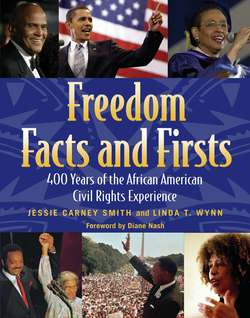Читать книгу Freedom Facts and Firsts - Jessie Carney Smith - Страница 17
На сайте Литреса книга снята с продажи.
Cosby, Bill (1937–)
ОглавлениеFrom an early age, Bill Cosby learned through his love of jazz how to take an idea and find new ways to express it. In his role as a comedian, entertainer, and philanthropist he has campaigned for a better world by using this approach. His ability to use comedy to express the common experiences between all persons began in the 1960s, when the Civil Rights Movement was in full force. He revolutionized comedy in 1963, when he came on the television scene with an act that did not use race as a subject. His goal was to talk about the similarities between people of all races and not the differences. He again made a historic impact in 1965, when he played alongside a white actor as his equal in the television series I Spy. Cosby’s career in the entertainment field has supported a perspective of black Americans that lends itself to an equal share in the social and political opportunities open to all Americans. This idea is most poignant in his 1984 television show The Cosby Show, which broke many stereotypes about black Americans by allowing America to enter into the everyday lives of a middle-class black family. The similarities of experiences kept America watching this show from 1984 to 1992.
Cosby’s commitment to education, which was a key factor in the struggle for civil rights, set the tone for his philanthropy, which supported many black colleges. He gave substantial contributions to Historic Black Colleges and Universities (HBCUs) such as Fisk University, Howard University, and Morehouse College, among others. He also gave to the United Negro College Fund, the NAACP and Operation PUSH. Cosby’s view of life as presented through his work offers a more equal perspective of rights and opportunities that should be afforded all Americans regardless of race.
Lean’tin L. Bracks
